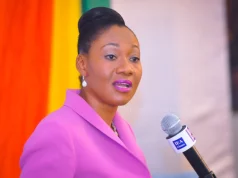The flagbearer of the main opposition National Democratic Congress (NDC), Mr John Dramani Mahama on Saturday unveiled his 2024 manifesto at the University of Education, Winneba, in the Central Region.
The manifesto, a cornerstone of the NDC’s campaign, promised to address the nation’s pressing issues by prioritising job creation, enhancing accountability, and driving economic prosperity.
However, these promises are coming from former President Mahama, whose tenure is often remembered for the severe energy crisis that gripped the nation, plunging Ghana into darkness and leading to significant economic difficulties. Between 2012 and 2016, prolonged power outages, commonly referred to as “dumsor,” crippled businesses and resulted in widespread job losses.
For many, Mahama’s track record casts doubt on the credibility of his current pledges.
A major highlight of the manifesto is the proposed financial intervention for first-year university students.
This promise has raised eyebrows, particularly given Mahama’s previous criticism of the Free Senior High School policy, which he dismissed as a waste of state resources.
This apparent shift in policy raises questions about consistency and whether the promises are driven by genuine commitment or simply an attempt to appeal to voters.
It is worth emphasising that President Akufo-Addo’s administration has implemented bold initiatives, such as promoting responsible mining, advancing industrialization, and executing a financial sector clean-up—policies that have had mixed reception but are widely regarded as beneficial for the greater good.
Mr. Mahama’s promise to probe the financial sector clean-up, which has been crucial in restoring confidence and stability to Ghana’s banking industry, is puzzling.
His focus on accountability is further questioned by his lack of interest in investigating the actions of his administration that left the sector in dire need of reform.
Another contentious point is Mahama’s stance on illegal mining.
His promise to ban illegal mining starkly contrasts with his criticisms of the government’s sustainable mining initiatives, raising doubts about his sincerity.
Additionally, his previous pledges to release individuals convicted of illegal mining further muddy his newfound stance.
The manifesto’s emphasis on economic transformation also appears contradictory, especially given Mahama’s criticism of efforts to boost Ghana’s nascent automotive industry.
Under President Akufo-Addo’s leadership, major automotive brands like Volkswagen and Toyota have established operations in Ghana, positioning the country as an emerging hub in the sector.
Mr. Mahama’s position threatens this progress, raising concerns about the potential adverse consequences for employment and Ghana’s long-term economic prospects.
As the NDC gears up for the 2024 elections, the manifesto has sparked debate over whether it represents a genuine blueprint for national development or is merely a vehicle for political propaganda.
Mahama’s reference to a “new NDC government” has not gone unnoticed, with some interpreting it as an admission of his abysmal performance during his first term.
While some of Mahama’s supporters admit to these past failures and view 2024 as a chance for redemption and an opportunity to alter his legacy as the only one-term president in the 4th Republic, critics remain sceptical.
They caution that if Mahama’s performance fell short when he had much to prove, Ghanaians should be wary of what to expect when he has nothing left at stake.







































